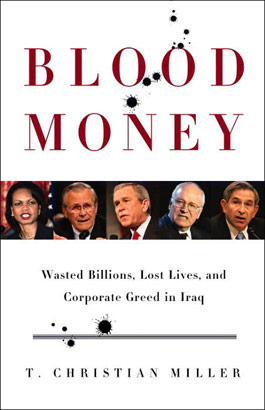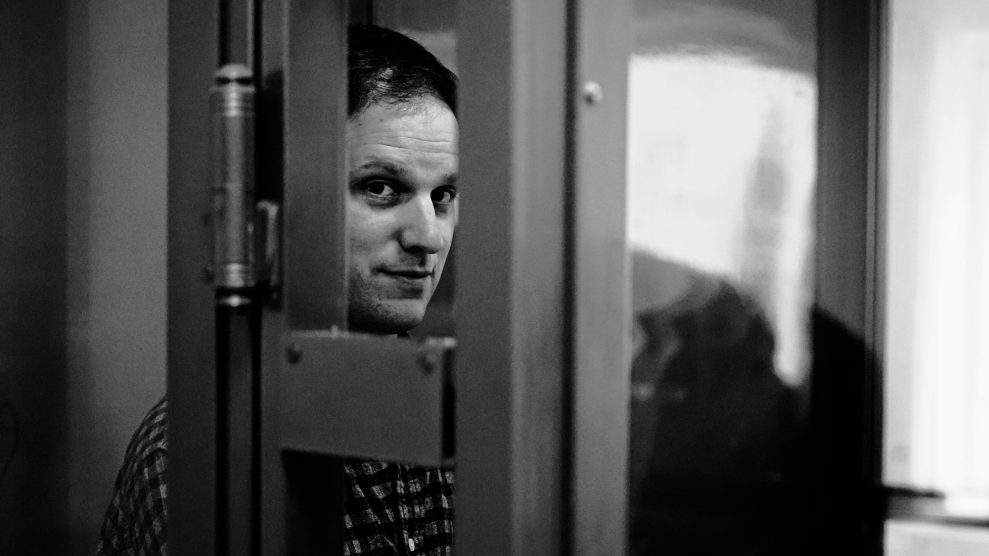
The Bush administration’s reconstruction of Iraq was a farce from the start—a low-rent Marshall Plan conceived by a cast of ideological cronies with no unifying strategy and no real hope of success. As T. Christian Miller, a top-flight investigative reporter for the Los Angeles Times, puts it in this revealing book, “It was a rebuilding without a foreman or blueprints.” Blood Money tells the story behind this $30 billion failure, a colorful tale of corrupt profiteers, murdered American contractors and Nepalese laborers, and C-130 cargo planes packed with tons of $100 bills that American officials blasted across Iraq “like a leaf blower.”
Along the way, Miller introduces us to opportunists who tried to cash in on the chaos, like Jack Shaw, a hardheaded Pentagon hack who stalled the construction of an Iraqi 911 system in an attempt to rig a contract involving Qualcomm, an Eskimo tribe, and a Rolls-Royce-driving Irish eccentric. Then there’s Scott Custer and Mike Battles, Army buddies who set up shop in Baghdad and became millionaires by providing untrained security guards and inoperable trucks to the U.S. government. Even Laura Bush makes an appearance, recruiting an old family friend with a harebrained scheme to build a $500 million state-of-the-art children’s hospital in a country where 70 percent of childhood deaths are caused by easily preventable ailments like diarrhea.
Miller also uncovers the heroes of the reconstruction, the mid-level bureaucrats and contractors who stood up to Pentagon and Iraqi corruption, risking their careers and lives—such as the Republican weapons dealer who wouldn’t pay bribes to the Iraqi Defense Ministry and was murdered in a gangland-style hit. The challenge of doing an honest job in Iraq is summed up by a Halliburton trucker who keeps tampons in his cab to stanch gunshot wounds. “If you roll out thinking everybody is trying to kill you, you’re better off,” he explains. Miller concludes, “Working in Iraq was like tying your shoes in quicksand.”
In the Iraqi tribal tradition, “blood money” is the price paid—often in camels—to the family of a person who’s been accidentally killed. But as Miller reminds us, today Iraq is broken, and no amount of American money can put it back together again.















